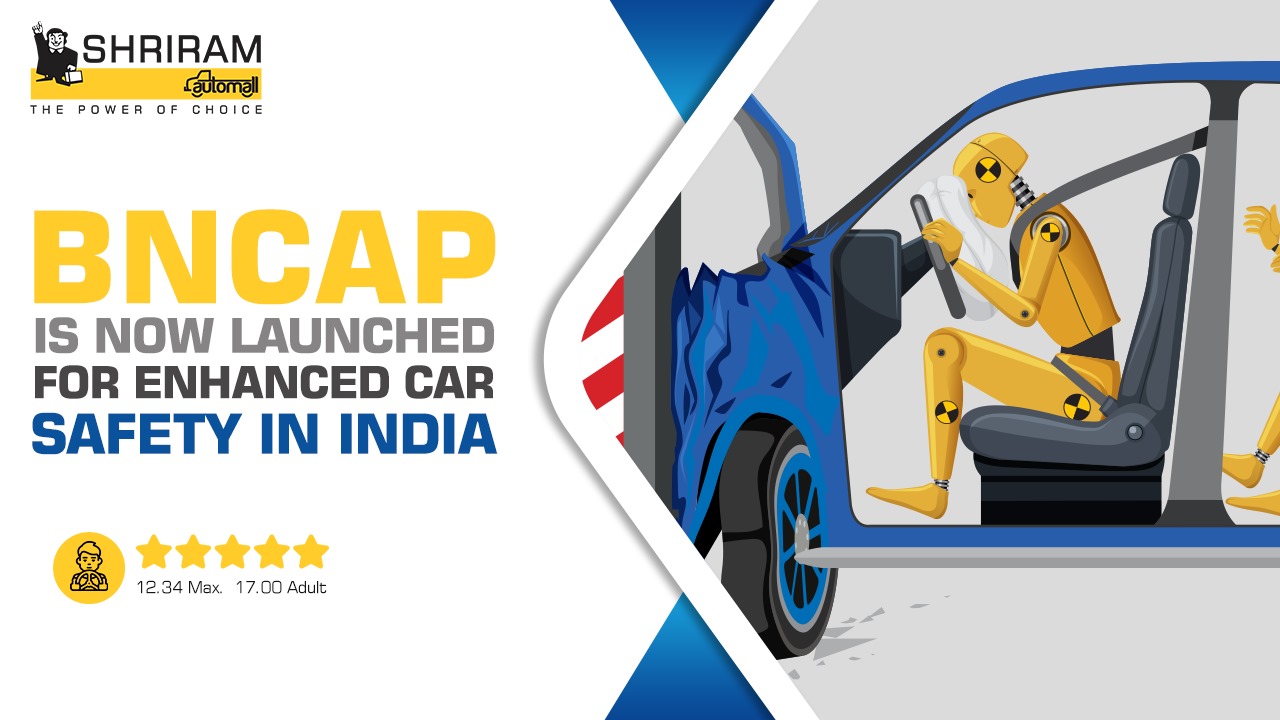BNCAP Launches to Enhance Car Safety Standards in India

The BNCAP crash protocols - AIS-197 - have been introduced as a voluntary initiative for passenger vehicle manufacturers to obtain star ratings for their cars, based on their performance in frontal-offset, side-impact, and side-pole-impact crash tests, aligning with global standards.
The much-awaited Bharat New Car Assessment Programme (BNCAP), led by the Ministry of Road Transport and Highways (MoRTH) under the guidance of Nitin Gadkari, the Union Minister for Road Transport and Highways, was officially launched at a grand event held in New Delhi. Eminent industry figures and key stakeholders participated, marking a significant step towards enhancing vehicle safety standards in India.
Under the BNCAP, vehicle manufacturers are encouraged to participate voluntarily in crash tests to attain star ratings, reflecting their cars' performances in frontal, offset, and side-impact collisions. These standardized crash test protocols, referred to as AIS-197, gauge both adult occupant protection (AOP) and child occupant protection (COP) attributes, drawing inspiration from global benchmarks like the Global New Car Assessment Programme (GNCAP).
Aligned with the updated GNCAP standards, the BNCAP testing protocol includes evaluating frontal-offset crashes at 64kph, simulating side-impact crashes at 50kph, and conducting specific side-pole-impact crash tests at 29kph. These tests contribute to awarding 3/4/5-star ratings to vehicles, allowing consumers to make well-informed choices while purchasing new cars.
Commencing its journey in 2011, the BNCAP initiative gained momentum in 2016 when the government accelerated efforts to raise safety benchmarks, fostering both industry growth and consumer interests.
Effective from October 1, 2023, the BNCAP will be managed by the Central Institute of Road Transport (CIRT) in Pune, overseeing the voluntary participation of OEMs for crash tests. The BNCAP committee will randomly select base variants of models for testing. Crash tests and evaluations for star ratings will be conducted by three test agencies - ARAI in Pune, ICAT in Manesar, and GARC in Chennai.
The union minister emphasized that the launch day of BNCAP is a significant day for the Indian automobile industry, as the BNCAP regime has been introduced in collaboration with all stakeholders. The well-structured program, accepted unanimously, paves the way for systematic and transparent testing, promoting independent evaluation by ARAI, ICAT, and GARC. With a cost of Rs. 60 lakh per car for BNCAP testing compared to Rs. 2.5 crore globally, it creates avenues for cost-effective and reliable testing.
He further adds, "The BNCAP, India's indigenous crash testing program, aligns with global standards, propelling the industry toward global benchmarks while empowering consumers to make informed choices. It's a crucial step in exporting high-quality 'Made in India' cars and ensuring consumer safety."
Vinod Aggarwal, President of SIAM, underscores the industry's commitment to rigorous safety standards and basic safety features. As part of the United Nations' goal to reduce global road fatalities by 50 percent by 2020, the Indian automobile sector collaborates with the government to achieve this milestone. The BNCAP aligns perfectly with this endeavour, enabling consumers to make educated vehicle choices, fostering comparison and informed decision-making.
In conclusion, the introduction of the BNCAP marks a pivotal moment for India's automobile landscape. As the industry converges towards global safety standards, the program empowers both manufacturers and consumers, creating a safer and more informed vehicle market.

 Download Our App
Download Our App



